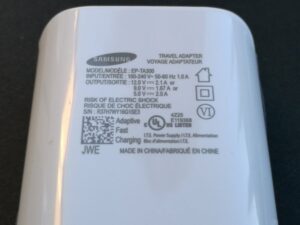Are corroded batteries dangerous? The short answer is yes, without a doubt. But let’s dig deeper into this pressing question and unravel the potential hazards that corroded batteries can pose. We’ve all encountered that frustrating moment when we discover a device with a battery compartment filled with that unsightly greenish or white powdery substance. It’s tempting to brush it off as a harmless inconvenience, but the reality is that corroded batteries can lead to serious consequences. In this article, we will explore the dangers associated with corroded batteries and provide you with essential information to ensure your safety and well-being. So, let’s get started and shed some light on this crucial matter.
Are Corroded Batteries Dangerous?
Corroded batteries can be a cause for concern. While batteries are a common and essential part of our everyday lives, they can pose certain risks when they become corroded. In this article, we will explore the topic of corroded batteries and discuss the potential dangers associated with them.
What is Battery Corrosion?
Battery corrosion refers to the buildup of residue that forms on the terminals of a battery. This residue is typically a mix of potassium hydroxide and sulfuric acid, both of which are present in many types of batteries. The corrosion process occurs when the battery undergoes chemical reactions, resulting in the release of gases and the formation of deposits on the terminals.
Causes of Battery Corrosion
Several factors can contribute to battery corrosion, including:
- Age: As batteries age, they become more prone to corrosion.
- Overcharging: Overcharging a battery can lead to excessive heat and chemical reactions, increasing the chances of corrosion.
- Environmental factors: Exposure to high temperatures, humidity, and salty air can accelerate the corrosion process.
- Leakage: Battery leaks can cause corrosion to spread beyond the terminals and affect other components of electronic devices.
The Dangers of Corroded Batteries
While not all corroded batteries are immediately dangerous, it is important to understand the potential risks they can pose. Here are some of the hazards associated with corroded batteries:
1. Electrical Malfunction
Corroded batteries can hinder the flow of electrical current, leading to device malfunction or failure. The buildup of corrosion on the battery terminals can prevent a secure connection, causing intermittent power supply or complete power loss. This can impede the functioning of electronic devices and render them unusable.
2. Device Damage
The acidic nature of the residue found on corroded batteries can cause damage to electronic devices. If the residue comes into contact with sensitive components or circuitry, it can lead to corrosion or even short circuits. This can result in permanent damage to the device, rendering it beyond repair.
3. Electrical Shock
In some cases, corroded batteries may leak or burst, releasing the corrosive substances they contain. If the leaked material comes into contact with skin, it can cause irritation or even chemical burns. It is important to exercise caution and avoid direct contact with corroded batteries.
4. Toxicity
The chemicals present in batteries, such as sulfuric acid and potassium hydroxide, can be harmful if ingested or inhaled. The corrosion process can release these chemicals into the surrounding environment, posing a risk to human health, especially if proper precautions are not taken.
5. Environmental Impact
Corroding batteries can also have a negative impact on the environment. The release of hazardous chemicals into the soil or water can contaminate ecosystems and harm plants and animals. Proper disposal of corroded batteries is essential to minimize this environmental impact.
Preventing Battery Corrosion
While it may not be possible to completely eliminate the risk of battery corrosion, there are measures you can take to reduce the likelihood of it occurring. Here are some preventive steps you can follow:
- Regularly inspect batteries for signs of corrosion, such as buildup or discoloration on the terminals.
- Avoid overcharging batteries and follow the manufacturer’s recommended charging guidelines.
- Store batteries in a cool and dry environment, away from excessive heat or humidity.
- Replace old batteries with new ones to minimize the chances of corrosion.
- Properly dispose of used batteries according to local regulations.
Corroded batteries can indeed be dangerous, posing risks to electronic devices, human health, and the environment. It is important to be aware of the causes and dangers of battery corrosion to ensure proper handling and disposal. By taking preventive measures and promptly addressing any signs of corrosion, we can mitigate the potential hazards associated with corroded batteries.
Remember, if you encounter a corroded battery, it is always best to seek professional assistance or consult the manufacturer’s recommendations for safe handling and disposal. Stay safe and protect yourself, your devices, and the environment from the potential dangers of corroded batteries.
Frequently Asked Questions
Are corroded batteries dangerous?
Yes, corroded batteries can be dangerous as they may leak hazardous chemicals and pose a risk of fire or explosion.
How do batteries get corroded?
Batteries can become corroded when the metal terminals react with moisture or chemicals in the surrounding environment, resulting in the formation of a corrosive substance.
What are the risks associated with corroded batteries?
Corroded batteries can leak potentially harmful chemicals such as potassium hydroxide or sulfuric acid, which can cause burns or skin irritation upon contact. Additionally, the leaking electrolyte can damage the device the battery is powering, leading to its malfunction or permanent damage.
What should I do if I come across a corroded battery?
If you encounter a corroded battery, it is important to handle it with care. Wear protective gloves and eyewear, and avoid direct contact with the leaking substance. Safely remove the battery from the device and wrap it in a plastic bag before disposing of it in accordance with local regulations for hazardous waste.
How can I prevent battery corrosion?
To prevent battery corrosion, ensure that batteries are properly inserted into devices and that the contacts are clean and free from debris. Avoid storing batteries in humid or extreme temperature conditions. If a device will not be used for an extended period, it is advisable to remove the batteries.
Can I clean corroded batteries?
It is generally not recommended to clean corroded batteries yourself, as the leaking substance can be hazardous. If you encounter battery corrosion, it is best to handle the situation with caution and dispose of the battery properly. If the corrosion has affected the device as well, it is advisable to seek professional assistance for cleaning or repairs.
Final Thoughts
Corroded batteries can pose serious dangers. When batteries corrode, they release harmful chemicals that can cause burns, skin irritation, and even lead to internal injuries if ingested. Additionally, the corroded battery may leak and damage the electronic devices it is powering. It is crucial to handle corroded batteries with caution and dispose of them properly. If you encounter a corroded battery, it is important to follow the appropriate safety measures to prevent any harm. So, to answer the question, yes, corroded batteries are indeed dangerous.




